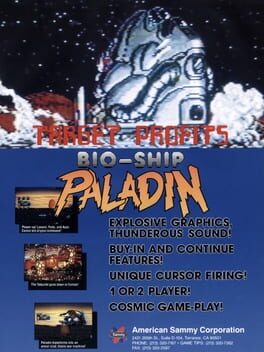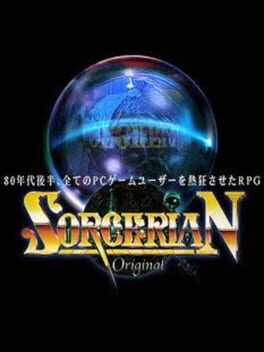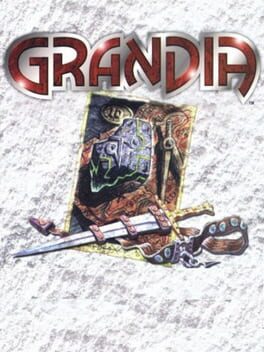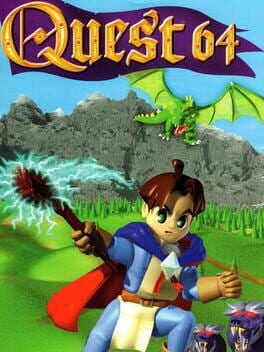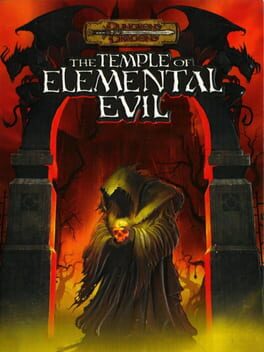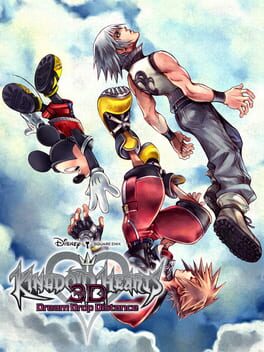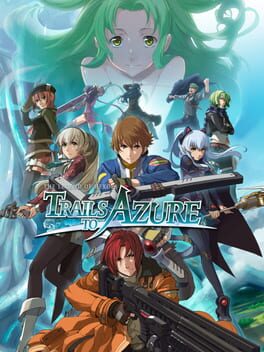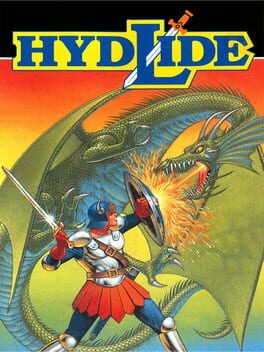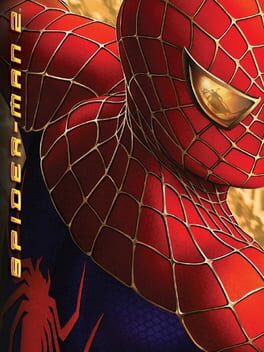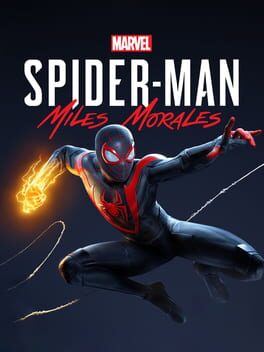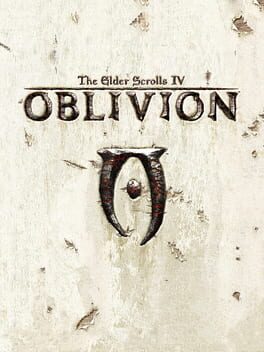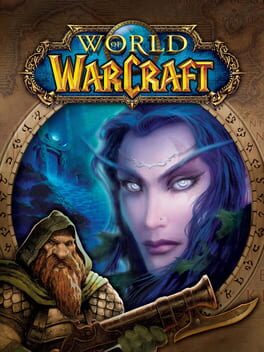farawaytimes
34 Reviews liked by farawaytimes
Bio-Ship Paladin
1990
Bio-Ship Paladin is a very strange game - enormously slow, with a defensive gameplay style similar to missile command. It drags on for an incredible length of time, not just from the perspective of the slow scrolling and movement, but also the sheer number of stages (there's like ten) and the fact that the game only has like 3 songs. As other players have noted, it's comically rigid, full of random ambushes that seem bafflingly impossible for you to dodge the first time through. (The boss of Stage 3 comes to mind). And yet, there's something weirdly engrossing about the whole experience.
I guess that fundamentally, the way the game is just so different from any other shmup I've ever played appeals to me. I think the idea of a game like Bio-Ship Paladin but with a bit more budget and thought put into it would be extremely cool. What I find most interesting about the game, though, is this sort of... uh... Dark Souls - esque "you WILL die, deal with it" energy to the whole game, the exact same thing that makes it frustrating to play. It's kind of... I hate to say this, because it's obviously incredibly silly to refer to a hyper-idealized genre game this way... realistic?
Okay, okay, so I know you're probably scratching your head at that. What I mean is, Bio-Ship Paladin feels like plodding battleship combat more than speedy movie thriller action 90% of the time. The bosses are of a classic style where instead of shifting from form to more and more dynamic form, instead they usually start out with a ton of weapons that you shred off of them until they're pitiful, so the fights start out overwhelmingly hard and become easy once you've deleted all your opponent's gun turrets. And that sort of all-or-nothing, throwing everything you've got at your opponent, hoping its enough combat really reminds me of how real combat works... There's a sense of sad, trudging, despair-filled warfare in Paladin that's exacerbated by the grimy Genesis palette and the simple, melancholy soundtrack. In the end titles of the game you're presented with a listing of all the bosses you fought the entire time, and in an extremely unusual move, every boss has a listed crew count. There's no visible humans in the game at all, no cool protagonists babbling "Let's attack aggressively!" in lieu of a plot or fulfilling the local cute anime girl quota, no intro cutscene explaining the stakes, the only presence of humanity is their reduction to numbers in the end, a quiet procession of kill counts. More than anything that's what makes this feel like a depiction of heartless warfare to me, the casual mention of the fact that hundreds of people were manning the death-raining war machines that your two pilots had to shoot down and kill. It's pretty interesting.
Oh, speaking of two pilots. I think my favorite thing about Paladin was playing it with my brother. It's much easier as a two-player game for obvious reasons, a single player has to constantly switch modes to play the game (no twin stick capabilities on the Genesis!) which makes it way harder to handle all the ambushes it throws at you. But with two players you have the added element of communication, you actually have to talk to your partner to discuss threats and priorities. This is another aspect that feels powerfully simulationist, like an early 20th century warplane pilot having to get the help of their gunner. Bio-Ship Paladin is simultaneously a sterile space battle game where machines trade lasers with other machines without a human in sight, and a game defined entirely by the idea that to some degree, even if you can't see it, those mechanical behemoths are all about the people within them. Thousands die. That's life!
Also I like the thing where your ship gets larger and easier to hit as you get more health. Thanks for reading.
I guess that fundamentally, the way the game is just so different from any other shmup I've ever played appeals to me. I think the idea of a game like Bio-Ship Paladin but with a bit more budget and thought put into it would be extremely cool. What I find most interesting about the game, though, is this sort of... uh... Dark Souls - esque "you WILL die, deal with it" energy to the whole game, the exact same thing that makes it frustrating to play. It's kind of... I hate to say this, because it's obviously incredibly silly to refer to a hyper-idealized genre game this way... realistic?
Okay, okay, so I know you're probably scratching your head at that. What I mean is, Bio-Ship Paladin feels like plodding battleship combat more than speedy movie thriller action 90% of the time. The bosses are of a classic style where instead of shifting from form to more and more dynamic form, instead they usually start out with a ton of weapons that you shred off of them until they're pitiful, so the fights start out overwhelmingly hard and become easy once you've deleted all your opponent's gun turrets. And that sort of all-or-nothing, throwing everything you've got at your opponent, hoping its enough combat really reminds me of how real combat works... There's a sense of sad, trudging, despair-filled warfare in Paladin that's exacerbated by the grimy Genesis palette and the simple, melancholy soundtrack. In the end titles of the game you're presented with a listing of all the bosses you fought the entire time, and in an extremely unusual move, every boss has a listed crew count. There's no visible humans in the game at all, no cool protagonists babbling "Let's attack aggressively!" in lieu of a plot or fulfilling the local cute anime girl quota, no intro cutscene explaining the stakes, the only presence of humanity is their reduction to numbers in the end, a quiet procession of kill counts. More than anything that's what makes this feel like a depiction of heartless warfare to me, the casual mention of the fact that hundreds of people were manning the death-raining war machines that your two pilots had to shoot down and kill. It's pretty interesting.
Oh, speaking of two pilots. I think my favorite thing about Paladin was playing it with my brother. It's much easier as a two-player game for obvious reasons, a single player has to constantly switch modes to play the game (no twin stick capabilities on the Genesis!) which makes it way harder to handle all the ambushes it throws at you. But with two players you have the added element of communication, you actually have to talk to your partner to discuss threats and priorities. This is another aspect that feels powerfully simulationist, like an early 20th century warplane pilot having to get the help of their gunner. Bio-Ship Paladin is simultaneously a sterile space battle game where machines trade lasers with other machines without a human in sight, and a game defined entirely by the idea that to some degree, even if you can't see it, those mechanical behemoths are all about the people within them. Thousands die. That's life!
Also I like the thing where your ship gets larger and easier to hit as you get more health. Thanks for reading.
Butterfly Soup 2
2022
Sorcerian Original
2000
After being astounded by the sheer SOUL that Ys I and II and Xanadu Next exuded, the Ribose gene inside me awakened and I craved more Falcom. One HG101 article later and I learn about Sorcerian Original, the 2000 remake an 80s 2D ARPG originally released on the PC-88, and the fifth installment in Falcom's seminal Dragon Slayer series. I saw a few screenshots, listened to few tracks, felt the pure SOUL course through my veins, and I knew I had to at least try it out. With the power of the Google translate app, no Japanese characters were gonna stop me.
The preparation phase of the game works just like Wizardry; you can go into town to create and organize a party of four with different sexes and races, buy equipment, appraise items and get magic, and train to raise stats or learn new skills. The magic system in particular is relatively fleshed out, as you can enchant equipment with "planets" to increase certain stats and allow you to use some of the surprisingly large amount of spells in the game. There's over a 100 you can mix and match, although you'll probably settle on a few mid-game, as the different offensive magic is by and large redundant, and experimenting is expensive and time-consuming.
The actual gameplay, on the other hand, controls kinda like Zelda II. You run and jump around exploring the dungeon, fighting enemies, and helping NPCs. Combat feels extremely haphazard; because enemy behavior is so erratic, damage is low, and your melee characters' ranges are extremely short, evasive manuevers are useless and fighting mobs (and bosses) quickly devolves into just running into them and staying on their ass while you spam everything. Dungeon exploration feels more deliberate, with branching paths, puzzles, secrets, loot, and backtracking. A TON of backtracking. EVERY quest had you going back and forth for whatever mandatory reason. It didn't bother me much, especially since you move so quickly, but it can be annoying since the game can get pretty obtuse. It's REALLY bad in some quests, like the murder mystery on the boat, which was made especially painful by the seemingly random triggers to progress.
While the assessment so far might seem pretty negative, I really did have fun with this game. Outside of the great, memorable soundtrack, Sorcerian excels at leveraging your imagination. The idea is similar to that of the earlier Wizardry or the later Etrian Odyssey; provide the player with a basic quest storyline and the tools to make a party, and let their imaginations run wild and fill the blanks. The simple fetch quest of the first mission can quickly establish archetypes and characterization for your blank slate party. Characters even age after quests and training, and can become middle and old-aged, and even die, leaving behind a successor, further encouraging players to write their own personal stories. The game even comes with a little handbook that fleshes out the backstory for quests and describes items and enemies, and a "Book of Magic" that describes what each spell does and how to make them. Makes me feel like an adventurer, reading notes and doing research before I embark on quests.
At the end of the day, although it's rudimentary and rough around the edges, I've never played a game before that so purely served as a vehicle for your own creativity. There really is great value in exploring Falcom's (and in turn, JRPGs') roots, and playing an untranslated late 90s Japanese Windows game feels so nostalgic. There's even demos for the future games Lord Monarch and Brandish VT on the disc. Hopefully one day they remake all of the expansion pack missions in this style, or at least release them in English.
The preparation phase of the game works just like Wizardry; you can go into town to create and organize a party of four with different sexes and races, buy equipment, appraise items and get magic, and train to raise stats or learn new skills. The magic system in particular is relatively fleshed out, as you can enchant equipment with "planets" to increase certain stats and allow you to use some of the surprisingly large amount of spells in the game. There's over a 100 you can mix and match, although you'll probably settle on a few mid-game, as the different offensive magic is by and large redundant, and experimenting is expensive and time-consuming.
The actual gameplay, on the other hand, controls kinda like Zelda II. You run and jump around exploring the dungeon, fighting enemies, and helping NPCs. Combat feels extremely haphazard; because enemy behavior is so erratic, damage is low, and your melee characters' ranges are extremely short, evasive manuevers are useless and fighting mobs (and bosses) quickly devolves into just running into them and staying on their ass while you spam everything. Dungeon exploration feels more deliberate, with branching paths, puzzles, secrets, loot, and backtracking. A TON of backtracking. EVERY quest had you going back and forth for whatever mandatory reason. It didn't bother me much, especially since you move so quickly, but it can be annoying since the game can get pretty obtuse. It's REALLY bad in some quests, like the murder mystery on the boat, which was made especially painful by the seemingly random triggers to progress.
While the assessment so far might seem pretty negative, I really did have fun with this game. Outside of the great, memorable soundtrack, Sorcerian excels at leveraging your imagination. The idea is similar to that of the earlier Wizardry or the later Etrian Odyssey; provide the player with a basic quest storyline and the tools to make a party, and let their imaginations run wild and fill the blanks. The simple fetch quest of the first mission can quickly establish archetypes and characterization for your blank slate party. Characters even age after quests and training, and can become middle and old-aged, and even die, leaving behind a successor, further encouraging players to write their own personal stories. The game even comes with a little handbook that fleshes out the backstory for quests and describes items and enemies, and a "Book of Magic" that describes what each spell does and how to make them. Makes me feel like an adventurer, reading notes and doing research before I embark on quests.
At the end of the day, although it's rudimentary and rough around the edges, I've never played a game before that so purely served as a vehicle for your own creativity. There really is great value in exploring Falcom's (and in turn, JRPGs') roots, and playing an untranslated late 90s Japanese Windows game feels so nostalgic. There's even demos for the future games Lord Monarch and Brandish VT on the disc. Hopefully one day they remake all of the expansion pack missions in this style, or at least release them in English.
Grandia
1997
Quest 64
1998
While it's not a bad game, it feels... ill conceived? It's definitely an adaptation of The Temple of Elemental Evil, the old D&D adventure, adapted for D&D 3.5. It really ends up feeling more like a dungeon crawling tactics game than a CRPG to me, and an unerringly difficult one at that. You could compare it to the Icewind Dale games, but those are fast and fluid and varied, mostly about the rush of combat. ToEE is slow and atmospheric, being about the dungeon crawl itself, but doesn't really recreate what's fun about doing a dungeon crawl in real life, the dynamism and flexibility of a human dungeon master's designs playing in a game that, no matter how harsh it can be, is forgiving (if you play with chill people).
Also, the game is real buggy. Or maybe just unclear about what's happening? I played with a community mod (temple+) and even then; characters stopped gaining xp randomly, turns would be lost out of the blue, the game would crash and I'd need to replay 15 minutes of rote traveling just to get back to town.
I wouldn't play this if you don't just absolutely adore D&D 3.5.
Also, the game is real buggy. Or maybe just unclear about what's happening? I played with a community mod (temple+) and even then; characters stopped gaining xp randomly, turns would be lost out of the blue, the game would crash and I'd need to replay 15 minutes of rote traveling just to get back to town.
I wouldn't play this if you don't just absolutely adore D&D 3.5.
Hydlide
1984
What? A 4 to Hydlide? Surely a mistake...
YES, it's impossible without a guide, YES it's janky as hell (god help you if you aren't using save states), but for 1984 it's an interesting game, and arguably there's a lot still interesting about it today that sticks with me.
There's so many weird little decisions that this game has. When it comes to action RPGs, I always think that if I have trouble or an interesting time killing the first slime... then it could be a good game. and that's the case here with hydlide, where I walked into a Slime while in "DEFEND" mode and promptly died. It felt like a weird puzzle trying to figure out how to get my first few levels.
Standing on forest tiles prevents you from regenerating health, and damages you. There's something moving in this simplicity of logic. Forests ARE dangerous, filled with unknown things, so of course you would get hurt while standing in one...right?
Attacking enemies based on where they're moving will hurt you more, back attacks are safer. But there's this absolute chaos to the chunky movement that makes it hard to consistently do.
As a result even the simple dungeons where you need to go two screens, pick up a chest, and leave... are remarkably tense. Sure it feels like a dice roll whether you'll just die, but there is an interesting layer of strategy that will increase your odds. So much personality and memorability in tiny, simple mazes. Each time you try to find the next place to grind it feels like a little microcosm of a 'new area' in a modern game - the zombie graveyard, the desert worms, etc... it feels like a big adventure shrunk down to this tiny size.
I'm a fan of the quiet narrative 'beats' - slimes being silently replaced by "HYPERS" on the overworld, upon reaching level 5 or 6.
I like some of the bizarre humor - the unexplained screens full of moving rocks and trees that will kill you even at max level. The screen of wasp-infested trees you need to investigate one by one to find a key item. Having to stand outside a cave of worms and slowly swat at them to grind out levels. Is it good? Not really, but the way Hydlide has these boiled-down, janky scenarios that we are familiar with today in action RPGs is sort of heartwarming. For example, the "standing outside a cave of worms" is very similar to cheese strategies for grinding hard enemies... The Elden Ring Moving Ball is similar to the Killer Rock in Hydlide.
The way this game gates stuff with obscure knowledge reminds me of Tower of Druaga, or arcade games in general. It's funny to know that you need to keep killing golden knights to get a key, but if you kill one more, the key vanishes. It's funny to learn that you have to drain the water around a moat to make a dragon vulnerable.
Ultimately, through the lens of 'is this playable and fun right away?' it's not a good game. But all the strange decisions and scenarios feel like they could be spun out and developed into interesting games of their own. So in that sense Hydlide feels like this box of possibilities.
